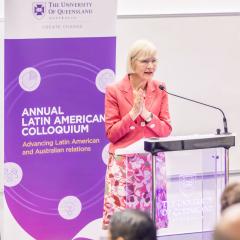The University of Queensland (UQ) International Development unit recently finalised a successful short course on climate change for the Australian Government’s Australia Awards Myanmar.
Delivered over 6 months online and in person, UQ International Development partnered with the Thailand Environment Institute and the Environmental Research Institute, Chulalongkorn University, to design and deliver the final 2 components in Thailand, given its proximity to Myanmar for participants.
Due to extreme weather changes and climate variability, declining crop yields and associated economic losses and increased food insecurity, Myanmar is one of the countries at most risk of climate crisis.
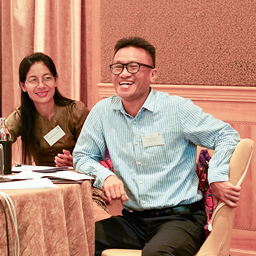
Agriculturalist Thant Wai Lin is one of the 21 participants of the Australia Awards Short Course alumni who are now collaborating with farmers, communities, civil society organisations, NGOs and private sectors to help build climate-resilient Myanmar, person by person.
Return-to-Work Plans (RWPs) are an important part of the program, enabling participants to apply their learning to real-world scenarios.
For Thant, his RWP includes building climate-resilient food crops for landless households and farmers, conducting paddy seed multiplication demonstration plots, and black gram cultivation.
He plans to apply conservation agriculture methods for 120 smallholder farmers, and chemical-free vegetable production for 150 smallholder and landless farmers.
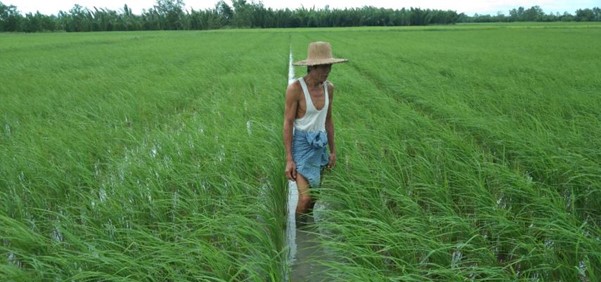
The Ayeyarwady Region, Myanmar’s rice bowl, is highly vulnerable to climate change.
Recently, rice production and other crops such as pulses and vegetables have been severely impacted by changing rainfall patterns, increased rainfall intensity, and seawater encroachment from rising sea levels.
Thant sees many variables making life hard for farmers and landless households due to climate disruption: high cost of seed compared to pre-coup prices, labour shortages, limited access to affordable agricultural loans, pest and disease infestation, soil quality and poor market access to quality grain.
“In my region, most landless households experience an unstable income, and they encounter significant financial challenges, particularly from September to October following the transplanting season, and from March to May following the harvest season, when job opportunities are scarce,” Thant said.
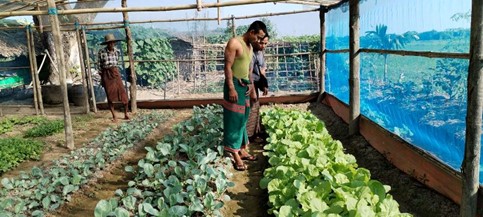
“As a means of coping with financial challenges, landless families often rely on loans from landowners, with the intention of repaying the loans by working as daily labourers during rice transplantation and harvest seasons.
"This often results in reducing their spending on essential items such as food and household utilities.
"Certain impoverished families opt to discontinue their children's formal education, having them contribute to the household income through labour instead.”
Half of Myanmar’s children are now deprived of a formal education due first to the Covid-19 pandemic and now the military coup.
A recent study by Scaling up Nutrition Civil Society Alliance (SUN CSA) on the food security status of pregnant and lactating women of children under 2 years in the Ayeyarwady region found 78% of respondents experienced reduced income, 71% job loss, 90% are in debt, and 54% of food producers reduced their food production after the military coup.
According to a Global Food Policy Report, nationwide, over one-third of children in Myanmar between the ages of 6–23 months and 15.8% of those aged 24–59 months have insufficient dietary quality.
Thant witnessed the disparity for women and children in accessing quality food and decided to do something about this inequality, alongside his knowledge of farmers working against the tide to grow sustainable food crops.
“After all these years of working in development, I have practical knowledge and experience from the Short Course that I directly actioned into a project in Myanmar,” Thant said.
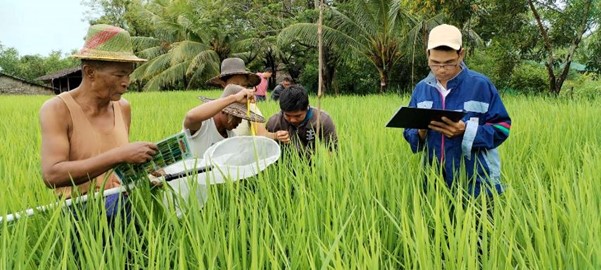
“The Farmer Field School at its core is a school without a building.
"The paddy field is the learning place where a group of farmers, typically 25 to 30 farmers from several villages, meet regularly to study and practice Agroecosystem analysis.”
“Regular analysis is conducted so that farmers become more aware of living and non-living things, and physical environments and interactions that make up the Agroecosystem to improve decision making and problem-solving skills through field analysis by observing, drawing and discussing.”
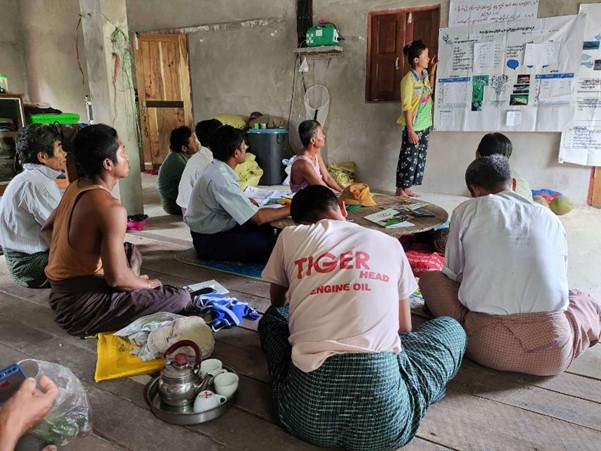
Farmers learn-by-doing through comparative studies (of different treatments) and field studies.
The climate change concept learned on the Short Course will also be incorporated into Thant’s Farmer Field School program.
“We will update the existing Farmer Field School curriculum by adding a module about responding to the climate change challenge,” Thant said.
“With content such as, What is climate change? What are the causes of climate change? Adaptation and mitigation measures, climate-smart agriculture, and conservation agriculture.”
This month, the donor approved an 8-month extension for Thant’s current project, extending the timeline from September 2024 to April 2025.
The project will offer capacity-building training to approximately 120 participants, which will include beneficiary farmers, members of an Inventory Credit System.
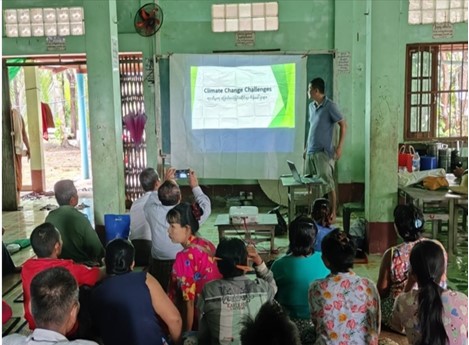
Thant also received approval and funding to run his project on climate-smart agriculture for another year beginning May 2025.
The Farmer-based Agricultural Cooperative program will be launched in the next project as an upskilling of the Inventory Credit System.
The training will encompass a wide range of subjects, including basic accounting, paddy and black gram legume production and how it can move efficiently from farms to consumers, while maintaining quality and meeting market demand (coined value-chain in agriculture), and leadership.
“We will ensure that women make up at least 30% of the beneficiaries for the paddy seed multiplication, black gram cultivation, and home garden programs,” Thant said.
“The project team will conduct selection next week, ensuring that women make up at least 30% of the participants.”
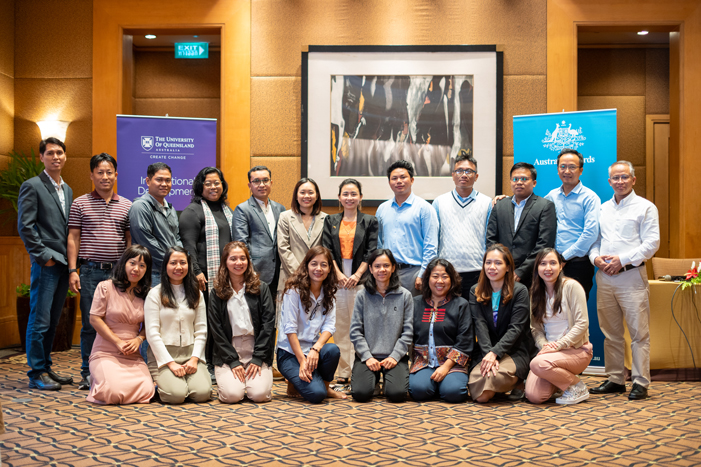
UQ International Development course coordinator Roxanne Mearns said that 21 participants and organisations who previously did not know each other, are now collaborating to help build a climate-resilient Myanmar, as they look forward to the next phase and a brighter future for their country.
"Participants have shared heartfelt gratitude to Australia, noting that many countries have cut ties since the coup in Myanmar, but Australia has kept the relationship with the people of Myanmar," Ms Mearns said.
"The Short Course not only served as a serious training ground for participants, but also a much-needed respite from the current chaos they're living through."
UQ International Development won the Queensland Premier’s Export Awards 2024 for International Education and Training.


